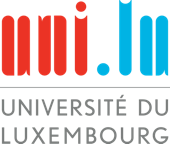About DARC
In recent years, argumentation theory has become an important topic in computer science and artificial intelligence, generating not only an impressive amount of theoretical work but also serving a growing number of practical applications. In fact, complex technical systems and services are increasingly based on autonomous artificial and human agents who have to communicate and collaborate to achieve their objectives. This involves negotiation, persuasion, and consensus-building among agents with different capabilities and viewpoint, a major issue for agreement technologies.
The understanding, modelling, and realization of these complex argumentative processes requires a dynamic, interdisciplinary perspective, which integrates and extends existing work in argumentation theory and knowledge representation. This can be done on an abstract level, inspired by the influential theory of Dung and his followers, or on an interpreted level, i.e., within a specific, typically defeasible inference system. Arguments here take the form of chains or trees of conditional reasons. Relevant areas are the dynamics of rule-based reasoning, logic-programming, and default inference with conditionals, as well in the context of epistemic/doxastic as in normative reasoning.
The DARC 2014 workshop (October 24th, Campus Kirchberg in Luxembourg) is intended to bring together people interested in the dynamics of formal argumentation understood in a broad sense, to exchange ideas, techniques, and results. DARC 2014 is a follow-up of the DARC workshop in 2012 and is organized alongside the PhD defence of Tjitze Rienstra on the subject of modelling change in argumentation theory (October 23rd, 14:00, Campus Kirchberg).
The workshop, as well as the PhD defence, is open to all researchers working, planning to work, or just interested in these topics. There is no registration fee.
Topics of interest include:
-
- Dynamic aspects of abstract and instantiated argumentation
-
- Modelling change via negotiation and/or dialogue
-
- Belief change for rule-based agents
-
- Dynamics of conditional knowledge, norms or default rules
-
-Updates in logic programming
-
- Revision and contraction in Horn Logic
If you are interested in attending, please send an email to tjitze.rienstra/at/uni.lu.







